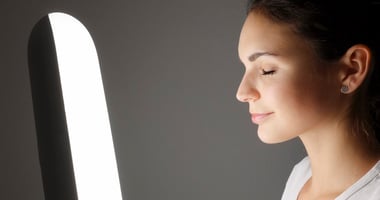Study Finds Form of CBT Superior to Antipsychotic Medication for Refractory OCD
 |
They conducted a randomized clinical trial at two academic outpatient research clinics that specialize in OCD and anxiety disorders. One hundred patients aged 18 to 70 with OCD of at least moderate severity despite a therapeutic SRI dose for at least 12 weeks were randomized to either risperidone, exposure-response therapy, or placebo.
Patients randomized to exposure-response therapy had significantly greater reduction on the Yale-Brown Obsessive Compulsive Scale, which was used to measure OCD severity. Moreover, patients receiving risperidone did not significantly differ from those receiving placebo. Adding exposure-response therapy was also superior to risperidone and placebo in improving insight, functioning, and quality of life.
“Patients with OCD receiving SRIs who continue to have clinically significant symptoms should be offered exposure-response therapy before antipsychotics, given its superior efficacy and less-negative adverse effect profile,” the researchers said.
To read more about research on OCD, see the Psychiatric News article, "Familial OCD: Environment, Genes Both Play Role."
(Image: Wollertz/shutterstock.com)





